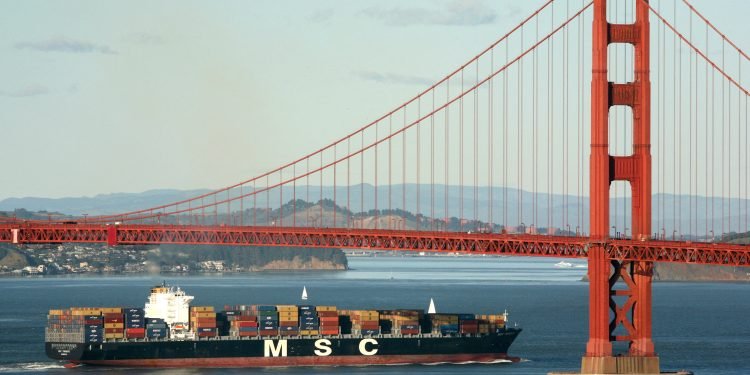By Eva Richardson | March 28, 2025 – The Logistic News
A coalition of major U.S. trade and shipping organizations has issued an urgent plea to the Office of the United States Trade Representative (USTR), urging it to abandon a proposed plan to impose significant vessel fees on Chinese-made ships calling at U.S. ports.
In a joint letter submitted this week, over a dozen industry groups—including the National Retail Federation (NRF), the Agriculture Transportation Coalition (AgTC), the National Industrial Transportation League (NITL), and the Pacific Merchant Shipping Association—warned that the proposal, currently under review by the USTR, would dramatically disrupt supply chains and impose heavy costs on American shippers, manufacturers, and consumers.
A Risky Policy Move Amid Ongoing Uncertainty
The proposed tariff-like measure, officially labeled a “port call fee,” would apply to vessels manufactured in China regardless of the shipping line’s nationality. Supporters of the measure argue it is designed to counter what they see as unfair competition and industrial overcapacity stemming from Beijing’s state subsidies for shipbuilding.
But according to trade groups, the economic fallout from such a move would be swift and widespread. “This policy would raise the cost of moving goods through U.S. ports, hurt American exporters, and put strain on an already fragile logistics system,” the letter states. “It’s a tax on supply chains at a time when predictability is desperately needed.”
Heavy Reliance on Chinese-Made Vessels
One of the critical challenges of the USTR’s proposal is the current global dependence on Chinese-built ships. According to industry estimates, more than half of the world’s container vessels were manufactured in China. The proposed rule, critics argue, doesn’t just target Chinese carriers—it would impact all ocean carriers, including major U.S. trading partners, if their ships were built in Chinese shipyards.
“This is not a narrow measure—it’s a sweeping one,” said Peter Friedmann, executive director of the AgTC. “And the burden will ultimately be passed down to American farmers, exporters, and consumers.”
Impact on Exporters and Port Communities
Agricultural exporters have expressed particular concern. Many rely on cost-effective containerized shipping to reach overseas markets. If shipping lines are forced to reroute or absorb extra fees, some exporters fear reduced access to outbound capacity or sudden cost spikes.
Meanwhile, port communities fear losing vessel calls altogether. “There is a very real possibility that some services could bypass U.S. ports to avoid the fee, choosing Canadian or Mexican terminals instead,” warned a representative from the Port of Long Beach.
Broader Trade Tensions and Timing
The USTR’s proposal comes amid growing geopolitical friction between the U.S. and China, and as the White House ramps up its “reciprocal trade” strategy. However, critics argue that the vessel fee plan is poorly timed, given the current fragility of global trade routes and the broader need for supply chain stability.
“These fees could spark retaliatory actions and escalate trade tensions even further,” said Jennifer Kennedy, senior policy advisor at the NITL. “We urge the administration to consider more targeted measures rather than policies that would indiscriminately disrupt global commerce.”
Awaiting Final Decision
Public hearings on the vessel fee proposal are currently underway. The USTR has not provided a timeline for a final decision, but industry insiders expect a ruling in the coming weeks.
For now, trade groups are intensifying their efforts to highlight the consequences. As the global shipping industry grapples with post-pandemic volatility, energy transition challenges, and labor shortages, many believe the last thing it needs is an added layer of regulatory uncertainty.
“This isn’t about politics—it’s about logistics,” Friedmann concluded. “And supply chains don’t operate well under unpredictability.”























